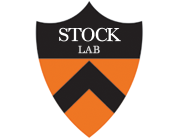The biochemistry of memory.
Type
Almost fifty years ago, Julius Adler initiated a program of research to gain insights into the basic biochemistry of intelligent behavior by studying the molecular mechanisms that underlie the chemotactic responses of Escherichia coli. All living organisms share elements of a common biochemistry for metabolism, growth and heredity - why not intelligence? Neurobiologists have demonstrated that this is the case for nervous systems in animals ranging from worms to man. Motile unicellular organisms such as E. coli exhibit rudimentary behaviors that can be loosely described in terms of cognitive phenomena such as memory and learning. Adler's initiative at least raised the prospect that, because of the numerous experimental advantages provided by E. coli, it would be the first organism whose behavior could be understood at molecular resolution.

